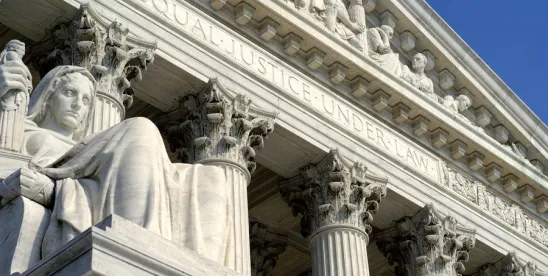Last week, in PDR Network, LLC v. Carlton & Harris Chiropractic, Inc., Case No. 17-1705 (2019), the Supreme Court declined to decide the level of deference that courts must afford the Federal Communications Commission (the “FCC”), finding that the answer may depend on resolution of two preliminary issues that had not been decided by the lower courts. The matter has been remanded to the Court of Appeals for the Fourth Circuit. In declining to reach the issues presented, the Supreme Court leaves open the crucial question of whether courts are bound by the FCC’s interpretation of the Telephone Consumer Protection Act (“TCPA”).
Pursuant to its statutory authority to “prescribe regulations to implement the requirements” of the TCPA, the FCC had promulgated a rule that “facsimile messages that promote goods or services even at no cost . . . are unsolicited advertisements under the TCPA’s definition.” See Rules and Regulations Implementing the Tel. Consumer Prot. Act of 1991; Junk Fax Prevention Act of 2005, 71 Fed. Reg. 25,967, 25,973 (May 3, 2006) (the “2006 Order”). In Carlton & Harris Chiropractic, Inc. v. PDR Network, LLC, Case No. 3:15-cv-14887, the U.S. District Court for the Southern District of West Virginia declined to defer to the 2006 Order, holding that the Hobbs Act, a statute that limits TCPA litigants’ ability to challenge FCC rules in private civil litigation, did not compel the court to defer to “the FCC’s interpretation of an unambiguous statute.” The district court further held that under the 2006 Order, the fax at issue was not an advertisement because the rule requires an advertisement to have a “commercial aim,” finding that the fax at issue lacked such an aim.
On appeal, the Fourth Circuit reversed (previously discussed here), holding that the jurisdictional command of the Hobbs Act required a district court to apply FCC interpretations of the TCPA and finding that the district court erred by “declin[ing] to defer” to the FCC rule and issuing a ruling at odds with the plain meaning of the 2006 Order’s text.
In its ruling, the Supreme Court did not resolve the issue. Instead, the Supreme Court held that the extent to which the 2006 Order binds the lower courts may depend on the resolution of two preliminary sets of questions that were not considered by the lower courts. First, the lower courts did not determine whether the 2006 Order is the equivalent of a “legislative rule,” which is issued by an agency pursuant to statutory authority and has the force and effect of law, or an “interpretive rule,” which simply advises the public of the agency’s construction of the statutes and rules that it administers. If deemed an “interpretive rule,” the 2006 Order would not be binding on a district court. Second, the Supreme Court directed the Fourth Circuit to determine whether the defendant had a prior and adequate opportunity to seek judicial review of the 2006 Order. If the Hobbs Act’s exclusive-review provision (which requires certain challenges to FCC orders to be brought in a court of appeals within 60 days after the entry of the order in question) did not afford the defendant a prior and adequate opportunity for judicial review, the Supreme Court suggested that the Administrative Procedures Act may permit a party to challenge the 2006 Order’s validity in a private civil action, notwithstanding the limitations on review set forth in the Hobbs Act.
In conjunction with the D.C. Circuit’s ruling in ACA Int’l (previously discussed here), PDR Network creates significant uncertainty about how to interpret the TCPA and rules promulgated thereunder. And with Congress and the FCC reconsidering the regulatory framework to apply to automated calls and faxes, we can expect years of additional uncertainty (and resulting litigation).





 />i
/>i

